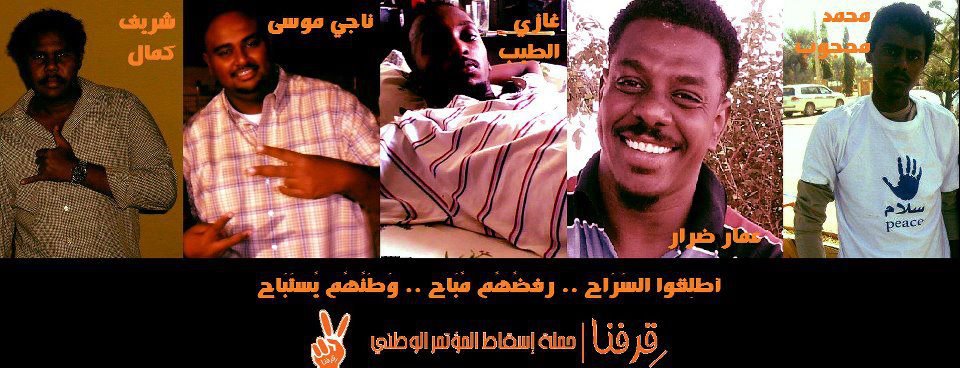
NAIROBI, Kenya — With conflict flaring in several regions of Sudan and a political showdown with South Sudan over oil threatening to spur an even more severe economic downturn, is Sudan’s Arab Spring in the making?
Reporting from Khartoum, journalists Ulf Laessing and Alex Dziadosz of Reuters suggested there are “glimpses” of an uprising to challenge the 23-year rule of President Omar al-Bashir. But they highlighted some important distinctions in Sudan which hinder the mass protests that sparked other revolutions over the past year.
“Power cuts, unreliable cell phone networks and low internet usage make it hard to mobilise people through Facebook or Twitter as happened in Egypt,” Laessing and Dziadosz wrote. In addition, the reluctance of established opposition parties, mostly led by elderly politicians, to call for mass protests has created a dearth in alternative leadership to rally around.
Without a broader movement to back them up, the young activists who are mobilizing in the streets and on campuses face serious risks, without knowing if their sacrifices will spark the changes they seek.
Girifna, one group at the forefront of the pro-democracy movement, has seen all too clearly the perils of challenging the status quo and contending with Sudan’s nefarious intelligence and security apparatus, known as NISS.
After two weeks of detention in Khartoum’s notorious Kober Prison, Girifna announced yesterday morning via Twitter that five of its activists had been released. The group—Nagi Musa, Amar Dirar, Gazi Eltayen, Omar Ahmad Hamid, and Sharif Kamal—was arrested on January 25 in connection with a protest in recognition of the 2005 Port Sudan Massacre. The news comes just days after two others—Mohammed Mahjoub and Khalafalla Saeed Omer—were released. Some of the Girifna detainees reported that they were subjected to torture and mock execution at the hands of the NISS.
At least three young activists remain in prison, including Taj al Sir, who was arrested in late December for his involvement in a non-violent rally at the University of Khartoum. The group expressed concern in particular about his well being after one of the released members reported out on the harsh treatment he is thought to have endured. “Taj al Sir is in bad shape, I heard his screams,” Girifna tweeted on behalf of the former detainee. The Enough Project has received an unconfirmed report that he is on a hunger strike.
Sudanese activists have also expressed concern over the reported detention, since last year, of young Darfuris, such as Mohamed Idris Gito, a Darfuri student at Khartoum University, who was reportedly detained on December 30, 2011. His whereabouts remain unknown.
In a press release issued late Thursday, Girifna stated that they will continue to work to end Sudan’s national security act that permits the NISS to “arrest, detain, and torture all voices of dissent for extended periods of time.” The group’s ultimate aim is clear: “We will also continue our struggle to peacefully overthrow the NCP.”
Far from appearing deterred by the abuses committed against its members and threats to track down the group’s other adherents, the Girifna Twitter feed suggests the group views the recent arrests as proving the importance of their work. “The NISS is shocked at us for choosing to fight against them, for accepting torture and detention for our cause, we will never stop.”
The state of the economy, the evolution of Sudan’s regional conflicts and their respective armed opposition movements, and relations with South Sudan are all factors at play in affecting whether Girifna’s message will take hold more broadly. For now, the group’s members acknowledge that the closure of most opposition newspapers in Sudan means that the recent detentions didn’t received the attention that would help recruit new supporters or inspire others to start similar activities.
“The reporters are afraid of losing their jobs or facing long term jail sentence," said Girifna’s Ibrahim Babiker in an email to the Enough Project. Babiker referenced the case of journalist Abuzar Ali al-Amin—who served a year-and-a-half long sentence but remains in jail and could face the death penalty—that sent a chilling message from the state encouraging self-censorship.
“Some of the more independent newspapers, like Ayyam, covered the detentions. But I would say that awareness was weak among the general public,” added Dalia Haj Omar, a Girifna leader in Khartoum. But in her recent appearance on Al Jazeera English’s The Stream, Omar expressed optimism that Girifna and other groups led by young people will have an effect, based on their resilience and grassroots approach.
“The youth who are part of this movement are ready to take risks that probably the political parties are not taking,” Omar said. “The political parties—it’s all about power politics for them. But these youth, they are taking risks, they are pushing the envelope when it comes to freedoms.”
Photo: Several Girifna activists recently detained by Sudan's NISS (Girifna)

